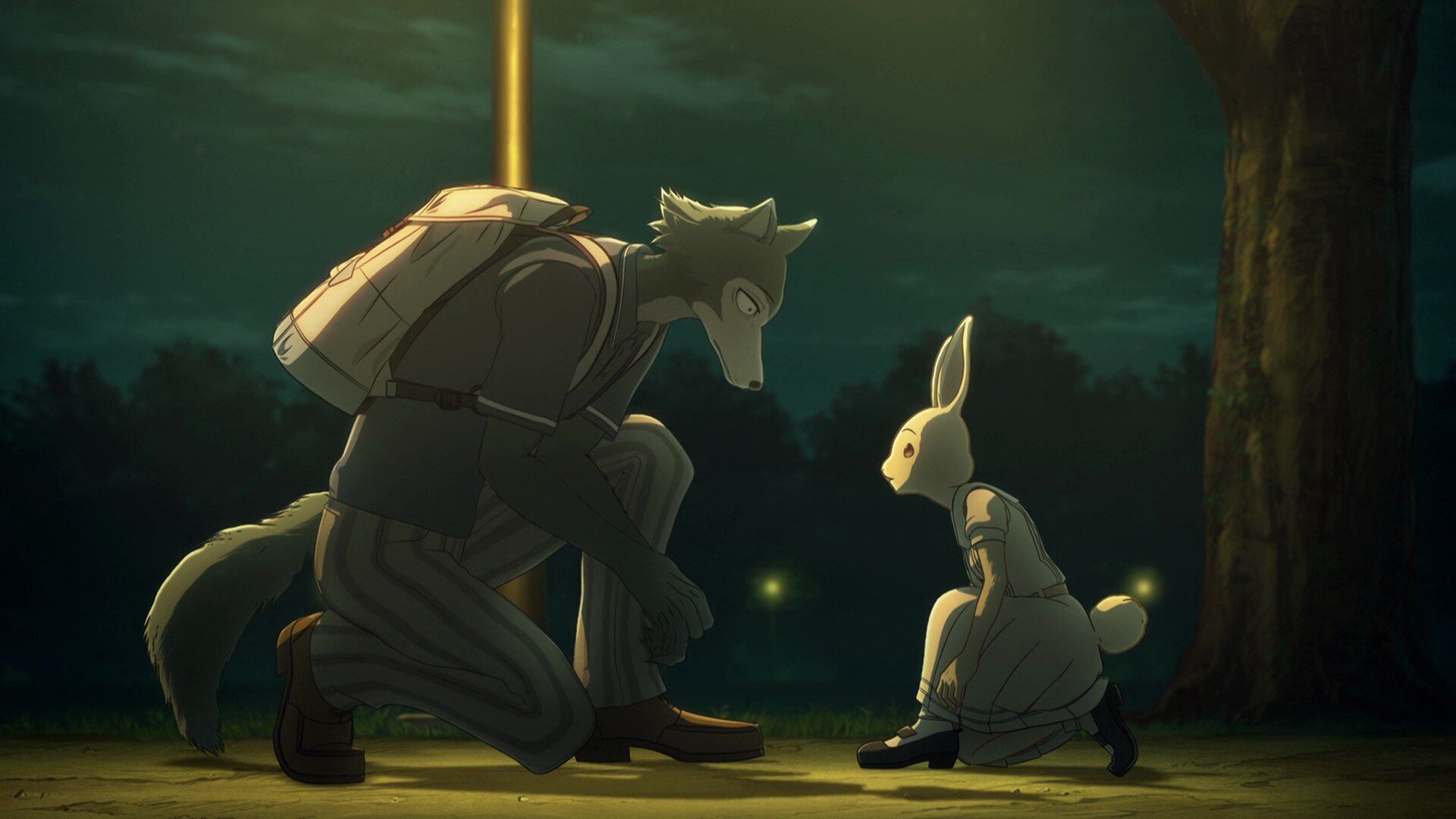Screens — Beastars, Parasite, The Kingmaker
By Adolfo Aranjuez
Beastars
2020 // 12 × 22 mins (until Season 2 arrives!) // Netflix
I’m opening this inaugural instalment of Screens with the most left-field of this month’s recommendations, and that’s because it’s the one that not only made the most robust impression on me, but also really highlights the non-Hollywood (or perhaps even anti-Hollywood) tendencies of Asian screen culture.
Beastars tells the story of dreamy, broody Legoshi, a teenage wolf who lives in a world where anthropomorphic animals ostensibly cohabitate, but are actually riven with unspoken resentments between the herbivore and carnivore populations. The latter, expectedly, are decreed to deny their hunterly instincts in the interest of keeping the peace—leading to hypersensitive interactions, shady activities and even hostilities between young people.
All of this initially just forms the backdrop to Legoshi’s daily travails, in particular his surprising but slowly deepening affections for Haru, a rabbit unpopular at their school who seeks nothing more than intimacy. The two, in fact, are relative outcasts—he, a lackey in the drama club’s lighting department; she, the sole member of the gardening club—and their will-they-won’t-they relationship (not to mention the perennial will-he-eat-her-or-not question) provides a strong anchor for this well-paced, compelling series’ narrative.
Yes, fine, there are notes of Twilight here. But the show is elevated by its beautiful visuals, intricate world-building and—once the series gets going in earnest, developing its myriad characters’ intertwining arcs—meditations on sociopolitical inequality, racialised conflict, fear and fearmongering, sexual attraction, and the issue of nature versus nurture.
Don’t be fooled into thinking this anime is just a repackaged thirsty Hollywood teen story (and it is so, so thirsty). As with all the best romances, here, the pursuit of another’s affections is also a gateway to attaining a greater love and understanding of the self.
• • •
Parasite
Bong Joon-ho, 2019 // 132 mins // Stan
I really don’t think I need to justify why Bong Joon-ho’s multi-Oscar-winning, multi-award-from-other-places-winning masterpiece merits inclusion in a list of Asian-cinema recommendations, but here’s my spiel in case, for whatever reason, you need convincing.
Sociopolitical dynamics are a recurring theme in Bong’s work, and he has a canny way of literalising them in his high-concept, high-tension films (see, for example: my favourite Bong film, Snowpiercer). In Parasite’s case, class lines are immediately drawn visually through the differing domestic situations of the Park and Kim families: the former live in an ultra-modern multi-level mansion in Seoul’s equivalent of Beverly Hills; the latter, in a decrepit basement downtown that barely has room for the four of them. The plot soon takes on a Marxian quality when the Kims ‘infiltrate’ the Park home through various work-related pretences and, as things inevitably get messy, become embroiled in a mutinous series of events that culiminate in convictions, death, entrapment and the establishment of a ‘new normal’.
I shan’t say more lest I verge into spoiler territory, but I will spare a moment to wax lyrical about the masterful acting, the shrewd character set-ups and exchanges, and the gorgeous production design. By film’s end, let’s just say that, like Marx’s dream that has sadly fallen short of eradicating inequality, what our protagonists are left with isn’t quite liberation.
• • •
The Kingmaker
Lauren Greenfield, 2019 // 101 mins // Stan
You know the former Philippine first lady with the thousands of shoes, and you know about the country’s current president with a reprehensible track record of shrugging off judicial processes and human rights. But did you know the two are actually—concerningly—politically in cahoots?
I haven’t lived in Manila since my teens, but I do take it upon myself to remain aware of issues in the motherland. And yet, despite my vigilance, The Kingmaker floored me. I knew the offspring of former dictator Ferdinand Marcos and this film’s subject, Imelda, had clawed their way into positions of power across the nation; somehow, though, I didn’t connect the dots that these were part of larger machinations not only to rehabilitate the Marcos name but also, ultimately, to realise Imelda’s dream of once again ‘mothering’ the nation (creepy, indeed).
The documentary covers substantial ground, from Imelda’s youth and entry into the orbit of Philippine public servants to her ascent, arm-in-arm with Ferdinand, to the ranks of international powerbroker, collecting friends in high places like Pokémon (and she has no shame in namedropping them). There is a humanity to Lauren Greenfield’s biographical approach—interviews with Imelda in her home or car, insights both doleful and damning from a range of talking heads—that nevertheless expertly eschews humanising a woman and a family responsible for the loss of many thousands of lives.
All in all, this is a revelatory film that revisits a dark period in Philippine history—one whose sinister clouds, perhaps, are floating back into the horizon. It also draws attention to the links between congeniality and cunning, glamour and perceived guiltlessness, and the ways in which societal amnesia can make us blind to the sins of the past.



